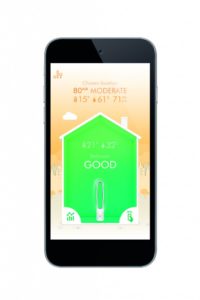Exposure data ‘Achilles’ heel’ of air quality research
Improved data is needed to better understand the personal health impacts of air pollution exposure, according to King’s College London professor
The lack of quality exposure data is the “Achilles’ heel” of research on the health impacts of air pollution, King’s College London Professor Frank Kelly said last week.
According to the Professor, better information about people’s physical activity and inhalation rate in relation to their exposure to air pollutants is needed to improve understanding of which pollution sources are the most dangerous.
Professor Kelly also called on the government to recognise the dangers of air pollution to health in the UK, although he said tackling air pollution was a “challenge”.
Professor Kelly’s comments came at the Air Quality and Emissions Show (AQE) 2013 in Telford on Wednesday (March 13), where he gave his presentation on ‘Air Quality and Health: application of personal air pollution sensors in population studies’.
The two-day AQE conference featured a number of speakers from across industry and government, as well as workshops and an exhibition for air monitoring firms.
Professor Kelly said: “The quality of the exposure data is still regarded as the Achilles’ heel of air quality epidemiology — an improved understanding of exposure to air pollution is required.
He added: “My view is that the government should recognise that air pollution in the UK is a considerable hazard for health in the UK — more so than traffic accidents, alcohol and other things.
“But this is the same for many governments. I do not think we should underestimate the challenge of dealing with air quality, but on the other hand we should not underestimate the impacts on health either,” he said.
Personal exposure studies
Highlighting the need for further studies into personal pollution exposure, Professor Kelly gave an overview of the recent study carried out by KCL researchers that saw 10 London volunteers wear personal air quality monitors for a day (see airqualitynews.com story).
Speaking after his presentation, he confirmed that further studies utilising personal air monitors would be carried out in the near future by KCL, but that monitoring nitrogen dioxide accurately using a personal monitor was difficult.
Professor Kelly said: “Researchers need access to reliable, light and relatively cheap personal pollution monitors. There is a need to develop new body sensors to advance real world exposure experiments and epidemiological studies. We need to better understand personal exposure.”
He added that the results showed exposure levels were very high for the two volunteers who commuted on the Tube during the KCL study.
However, commenting on the limited amount of personal exposure data currently available, he said: “The overriding mystery is whether it is the long term average exposure or the peaks in exposure that are more important. We don’t yet know that.”
Responding to a question on whether wearing masks to reduce personal exposure to air pollution was a good idea, as many are currently doing in heavily polluted Beijing, Professor Kelly said he thought this was “not the way to go” in the UK “because they are very expensive and may give you a false sense of security”.
Black carbon
The Professor also commented on the possibility of limiting black carbon emissions in the UK or at EU level, as although it is monitored in the UK, there is currently no legislation limiting emissions of the pollutant.
He said: “The general feeling is that there has not been sufficient evidence on black carbon to put in place legislation, but I think things will soon be moving forward on that.
“You need information on what you are being exposed to. There are ways in which that can be done. Once you understand what you are being exposed to then you have got to use that information intelligently to reduce exposure.”
Speaking just before Professor Kelly at the conference was Ricardo-AEA consultant to Defra, Brian Stacey, who said that the greater uncertainties in modelled compared to measured air quality could “cause problems with public understanding” of pollution levels (see airqualitynews.com story).
More information is available on the Air Quality and Emissions Show (AQE) 2013 website.














[…] Read more at Air Quality News. […]
The “study game” shall continue. At least for another hundred years or so. They use these studies to maximize how much toxic waste they can “shove down our throats” and still get away with it.
We don’t need studies to tell us that fresh clean air is healthy to breathe. We want some and we want it now.